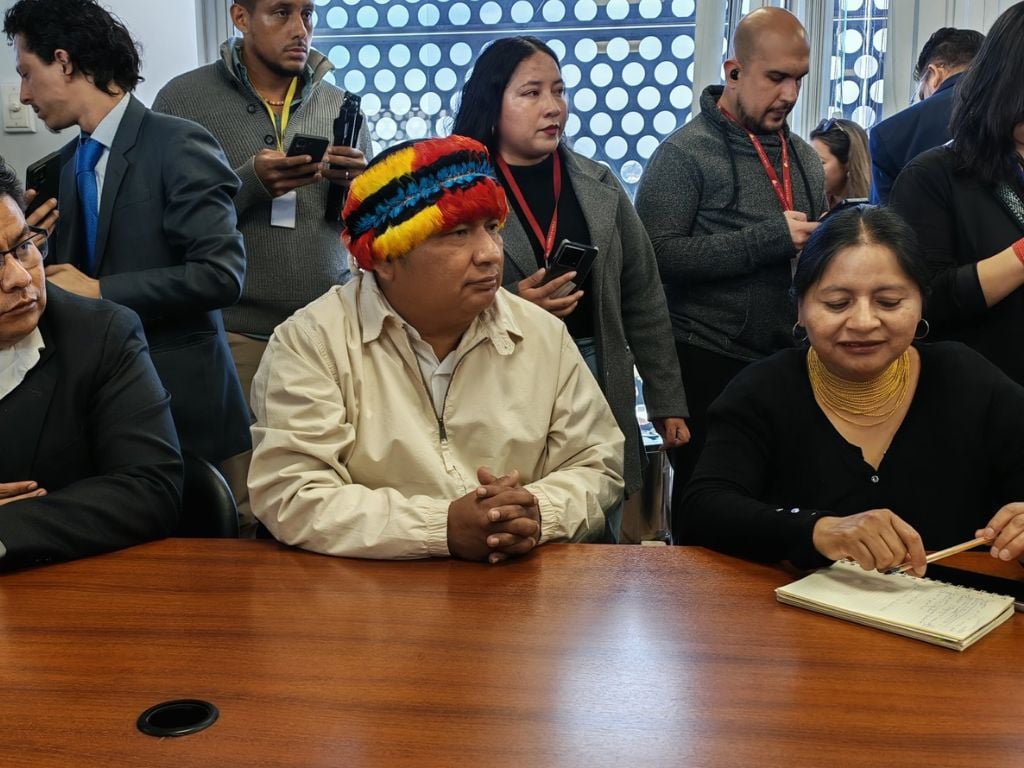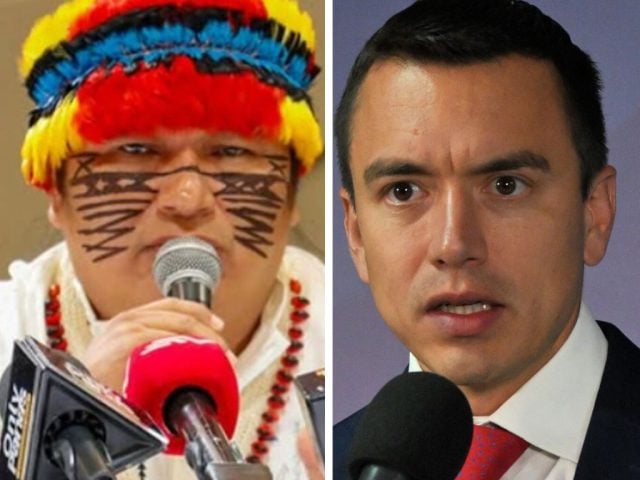The Confederation of Indigenous Nationalities of Ecuador (CONAIE) condemned what it calls “brutal repression,” state violence, abuses, and serious human rights violations during the nationwide strike sparked by the government’s decision to scrap the diesel subsidy under President Daniel Noboa. The organization urged the right-wing leader to “stop obeying the International Monetary Fund (IMF) and respect life.”
“Mr. President, stop being obedient to the International Monetary Fund. Instead of firing bullets at us, strengthen and provide the Ecuadorian people with quality education and healthcare, because hospitals lack medicines; community schools are deteriorated and lack teaching materials—schools across the country are in disrepair,” said CONAIE president Marlon Vargas before the National Assembly’s Commission on Constitutional Guarantees and Human Rights, which will investigate alleged abuses and violations committed during recent social demonstrations.
The crackdown has had a tragic toll: Kichwa leader Efraín Fuerez was killed, allegedly by Armed Forces personnel, and about one hundred people have been detained, while the Executive continues to refuse any dialogue table.
“That’s why we are here—not because we’re terrorists or drug traffickers. Drugs are not produced in our communes, communities, or the territories of our nationalities. Members of the Armed Forces, stop shooting our brothers and sisters. Many soldiers and police are themselves children of Indigenous nationalities. They train them and send them to the front line to pit us against each other—that’s what is happening in the Armed Forces and the police,” Vargas said.
The CONAIE leader reiterated that the Indigenous movement will keep the nationwide strike—launched on September 22—until the government repeals Executive Decree 126, which eliminated the fuel subsidy.
The policy shift has driven diesel prices sharply higher—from $1.80 to $2.80 per gallon—directly increasing transportation costs, squeezing agricultural production, and straining household budgets across wide swaths of the country, especially in Indigenous and rural communities that rely on diesel for work and mobility.
In response, strikes and roadblocks have spread across provinces including Imbabura, Pichincha, Cotopaxi, Bolívar, Chimborazo, and Tungurahua, among others.
“Our brothers and sisters remain firm in the face of these abuses by the government, and we will not abandon our just struggle. From CONAIE, we demand the immediate release of those detained—our youth are not terrorists or vandals,” Vargas asserted.
“For peace in Ecuador, we demand the repeal of Decree 126; otherwise, we will continue fighting. We categorically reject persecution and intimidation by the national government against people in the streets defending their rights. Many have mobilized—not only Indigenous communities but also the country’s impoverished sectors, students, homemakers, workers, and all exploited groups,” he told the parliamentary committee.

Impeachment push against Defense and Interior ministers over crackdown during national strike
According to Ecuadorian outlets such as El Comercio, relatives of those detained—and of Efraín Fuerez, killed during the strike in Cotacachi—appeared before the Assembly’s Commission on Constitutional Guarantees to present their cases and submit a series of petitions.
They were received by the Commission’s president, Verónica Iñiguez of the Citizen Revolution movement, and argued that President Daniel Noboa must be held accountable for arbitrary detentions, military and police repression, and the alleged state crime against Fuerez.
Vargas also asked the National Assembly to open impeachment proceedings against the ministers of Defense and Interior, Gian Carlo Loffredo and Jhon Reimberg, respectively, over the state violence reported during the protests.
Even as the Indigenous movement presented its complaints, the government of Daniel Noboa pressed ahead with a heavy-handed response against organized civil society and anyone who raises their voice against its economic and authoritarian measures.

